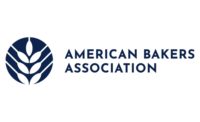On The Hill: Key Victories in Washington
The Snack Food Association’s government relations team, with the help of many SFA members, achieved significant successes in several key areas during 2005, and is poised for further achievement this year, according to Jim McCarthy, SFA president.
In a major victory in November, Congress delayed for two years the implementation of mandatory “country of origin labeling” (COOL). Thus, provisions affecting peanuts, meat and other products will not take effect until September 30, 2008. SFA and a coalition of allied organizations obtained this extension to provide time to seek repeal of the provisions.
In early December, the House Energy and Commerce Committee approved the National Uniformity for Food Act of 2005. With the support of SFA members who contacted their representatives, SFA helped obtain 218 co-sponsors, a majority of the House.
The legislation provides for food safety standards and warning requirements in a uniform, national system. Currently, food regulation is composed of many different and often-inconsistent requirements.
“As SFA works for final passage this year, the association will continue to ask for our members’ help,” McCarthy says.
On October 19, the House passed the so-called “Cheeseburger Bill,” legislation that would bar lawsuits that claim food companies’ high-calorie offerings are responsible for a plaintiff’s obesity. SFA worked with a coalition of food companies and other organizations to win passage of the bill, now pending before the Senate.
McCarthy notes that SFA also is pleased that the Environmental Protection Agency has proposed to extend for two years, until October 31, 2007, requirements for animal fats and vegetable oils in the Spill Prevention, Control and Countermeasure rule for oil and hazardous substances. He adds that SFA will continue to seek exclusion from these requirements.
Another achievement for members came with the Food & Drug Administration’s announcement in December that companies with supplies of labels that do not meet Trans Fat Labeling requirements, which took effect January 1, may obtain an extension to use up those labels.

